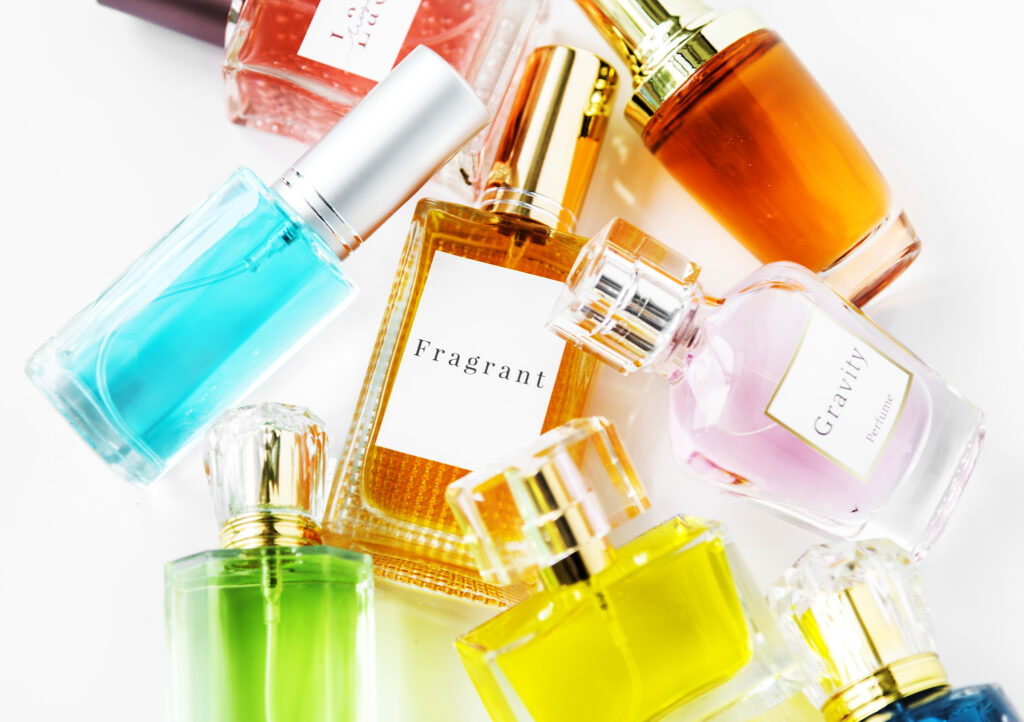In today’s world, we’re constantly surrounded by convenience and innovation. But lurking behind everyday items—receipts, plastic bottles, fragrances, and even the vibrant colors in our food—are chemicals that could be wreaking havoc on your hormone health. Could these items be the silent saboteurs of your well-being? The answer lies in a category of chemicals called xenoestrogens.
Xenoestrogens are synthetic compounds that mimic estrogen, a natural hormone in your body. While this may not sound too alarming at first, exposure to these chemicals has been linked to a variety of health issues such as uterine fibroids, endometriosis, infertility, PCOS, early menopause, early puberty, and even certain cancers and metabolic disorders.
What Are Xenoestrogens?
Xenoestrogens are chemicals found in everyday products that have estrogen-like effects on the body. They can disrupt your endocrine system, which regulates hormones. Hormones play an essential role in nearly every bodily function, from metabolism to mood. When xenoestrogens enter the body, they can throw your hormones out of balance, leading to serious health issues over time.
Some of the health problems associated with exposure to xenoestrogens include:
- Uterine fibroids: Benign tumors that develop in the uterus, often causing pain and heavy bleeding.
- Endometriosis: A painful condition where tissue similar to the lining inside the uterus grows outside of it.
- Infertility: Disruption of the reproductive system that can make it difficult to conceive.
- PCOS (Polycystic Ovary Syndrome): A hormonal disorder common among women of reproductive age.
- Early Menopause: Premature cessation of menstruation.
- Early Puberty: Accelerated onset of puberty, leading to physical and emotional challenges.
Not only are these conditions difficult to manage, but they also increase your risk of metabolic disorders, obesity, and certain cancers.
Everyday Items to Watch Out For
Here’s where it gets tricky—xenoestrogens are found in items we use every day. While it’s impossible to avoid all of them, becoming mindful of your exposure and making small lifestyle changes can significantly lower the risks. Here’s a closer look at common offenders:
- Receipts Yes, those little slips of paper could be doing more harm than you think. Many receipts are coated with BPA (Bisphenol A), a known endocrine disruptor. Opt to skip the printed receipt whenever possible or choose digital receipts instead.

- Plastic Bottles Ever wonder why everyone is shifting to stainless steel or glass bottles? Plastic bottles, especially those exposed to heat, can leach chemicals like BPA or phthalates into your beverages. This is especially true for bottled water left in hot environments like a car during summer.

- Fragrances That lovely-smelling air freshener or perfume might not be so lovely for your health. Many synthetic fragrances contain phthalates, another xenoestrogen. Opt for fragrance-free or naturally scented cleaning and personal care products.

- Food Dyes The vibrant colors in candies, soft drinks, and even some “healthy” foods often come from synthetic dyes that can disrupt your hormones. Studies have shown that food dyes may not only be harmful to hormone balance but can also affect mood and behavior.

Simple Steps to Reduce Exposure
The goal isn’t to live in constant fear or paranoia about everything we touch, eat, or breathe. Instead, it’s about making conscious choices to reduce exposure over time. Small, manageable changes can have a profound impact on your long-term health.
Here are a few actionable steps anyone can start today:
- Carry a glass or stainless steel water bottle: Say goodbye to plastic bottles, especially when they’re exposed to heat.
- Skip printed receipts: Opt for digital versions whenever possible to avoid contact with BPA-coated paper.
- Go fragrance-free: Choose cleaning products and personal care items that are free from synthetic fragrances and opt for natural essential oils.
- Avoid synthetic food dyes: Check labels and steer clear of artificial colorants in your food.
- Buy organic: When possible, go for organic foods to reduce exposure to pesticides and chemicals.
- Choose paraben-free products: These chemicals are commonly used in cosmetics and can mimic estrogen in the body. Opt for personal care products that are free from parabens.
- Clean your indoor air: Use air purifiers or house plants like spider plants and peace lilies to keep your indoor air fresh and toxin-free.
Think of Your Body as a Bucket
Here’s a helpful way to visualize how toxins impact your health. Picture your body as a bucket. Every day, toxins like xenoestrogens drip into that bucket. Your body naturally detoxes and drains the bucket, but when the toxins accumulate faster than they can be removed, your health starts to suffer.
The good news? You can help your body stay on top of that detox process by limiting your exposure to harmful chemicals. The less you allow into the bucket, the easier it is for your body to drain it.
Take Control of Your Hormone Health
Your hormone health is more in your control than you might think. By making small, consistent changes, you can significantly reduce your exposure to harmful xenoestrogens and endocrine disruptors. These simple swaps may seem minor, but they add up over time and help keep your hormone balance in check.
Book a call today to start your journey to a more vital and healthier you!







